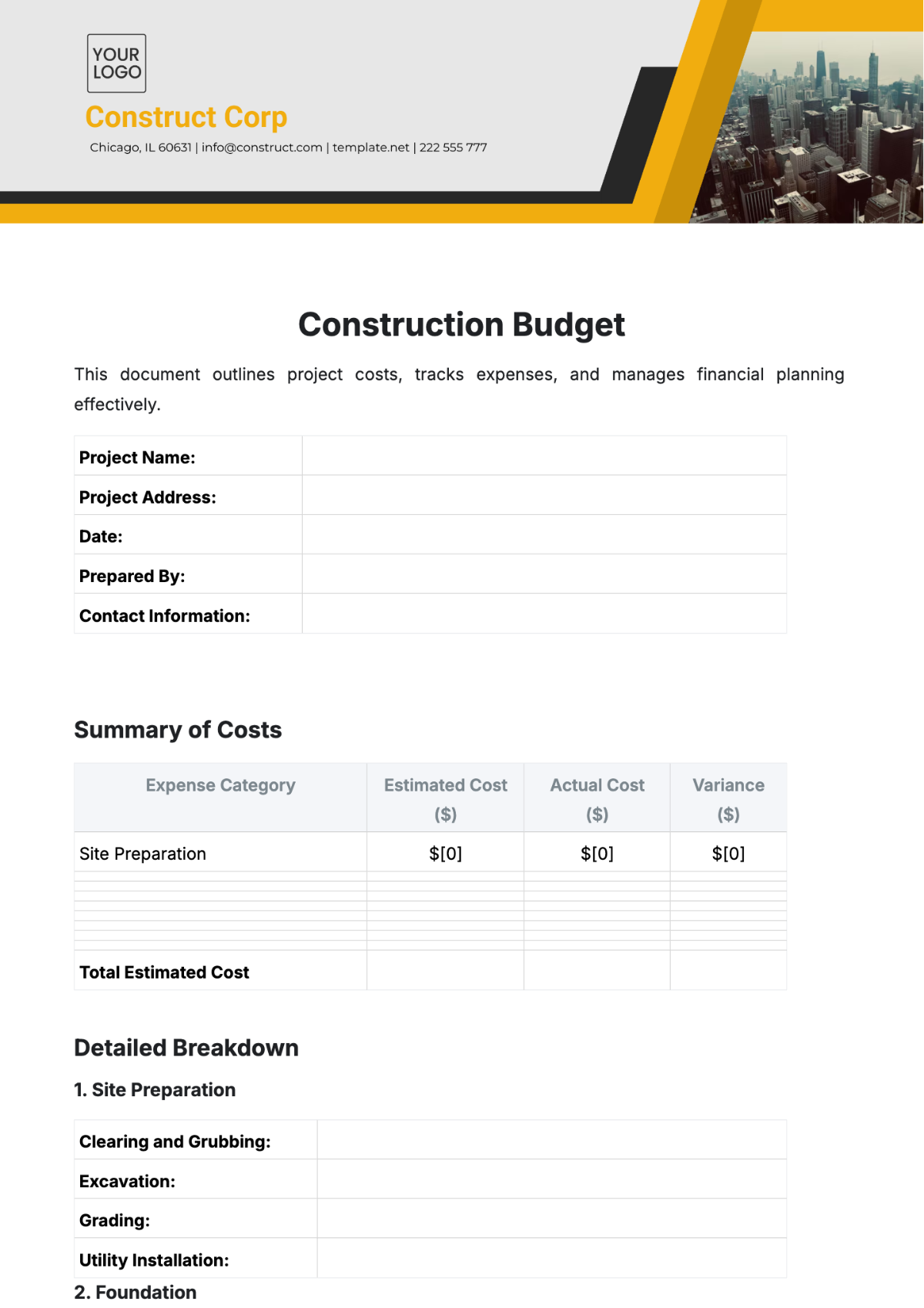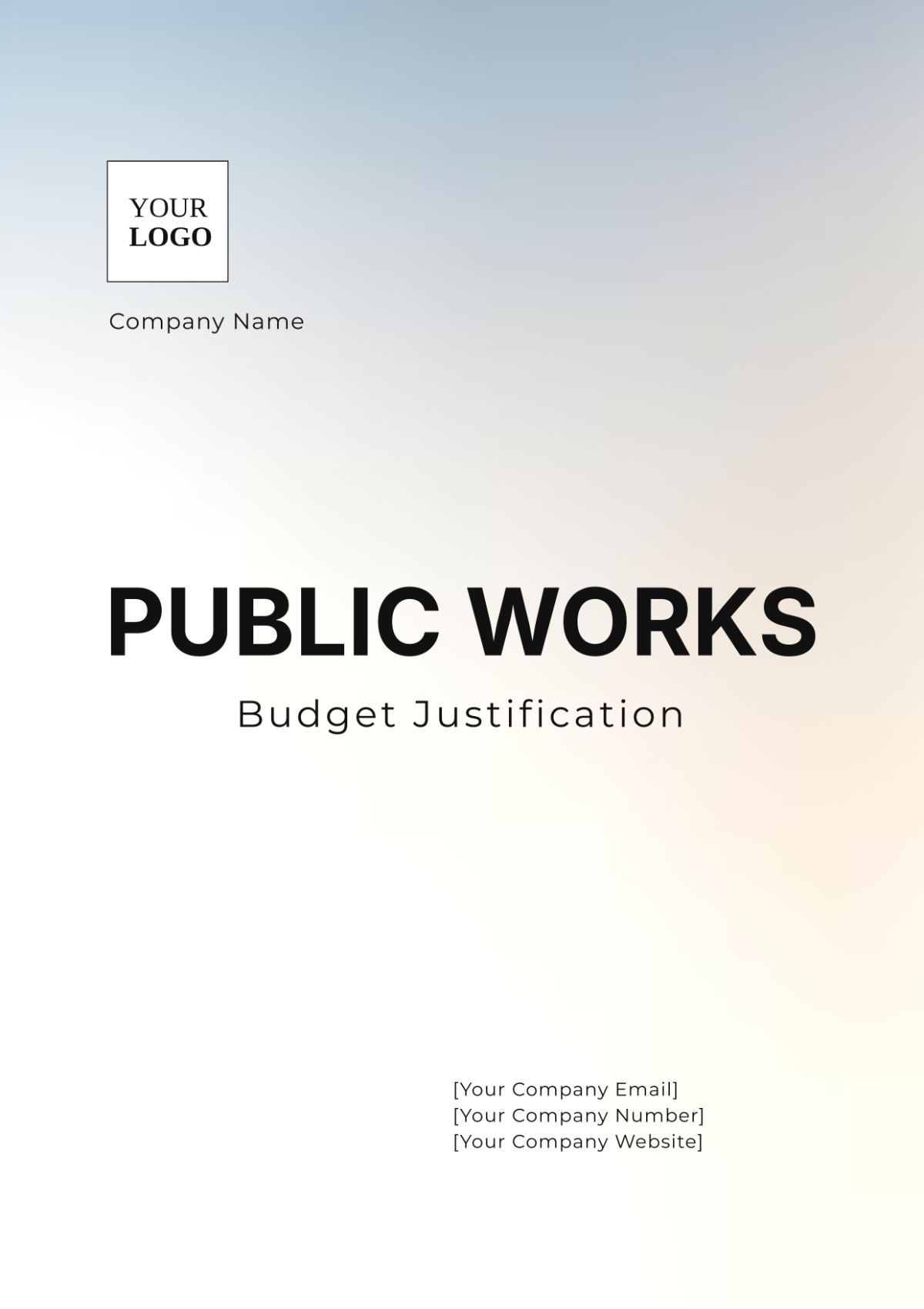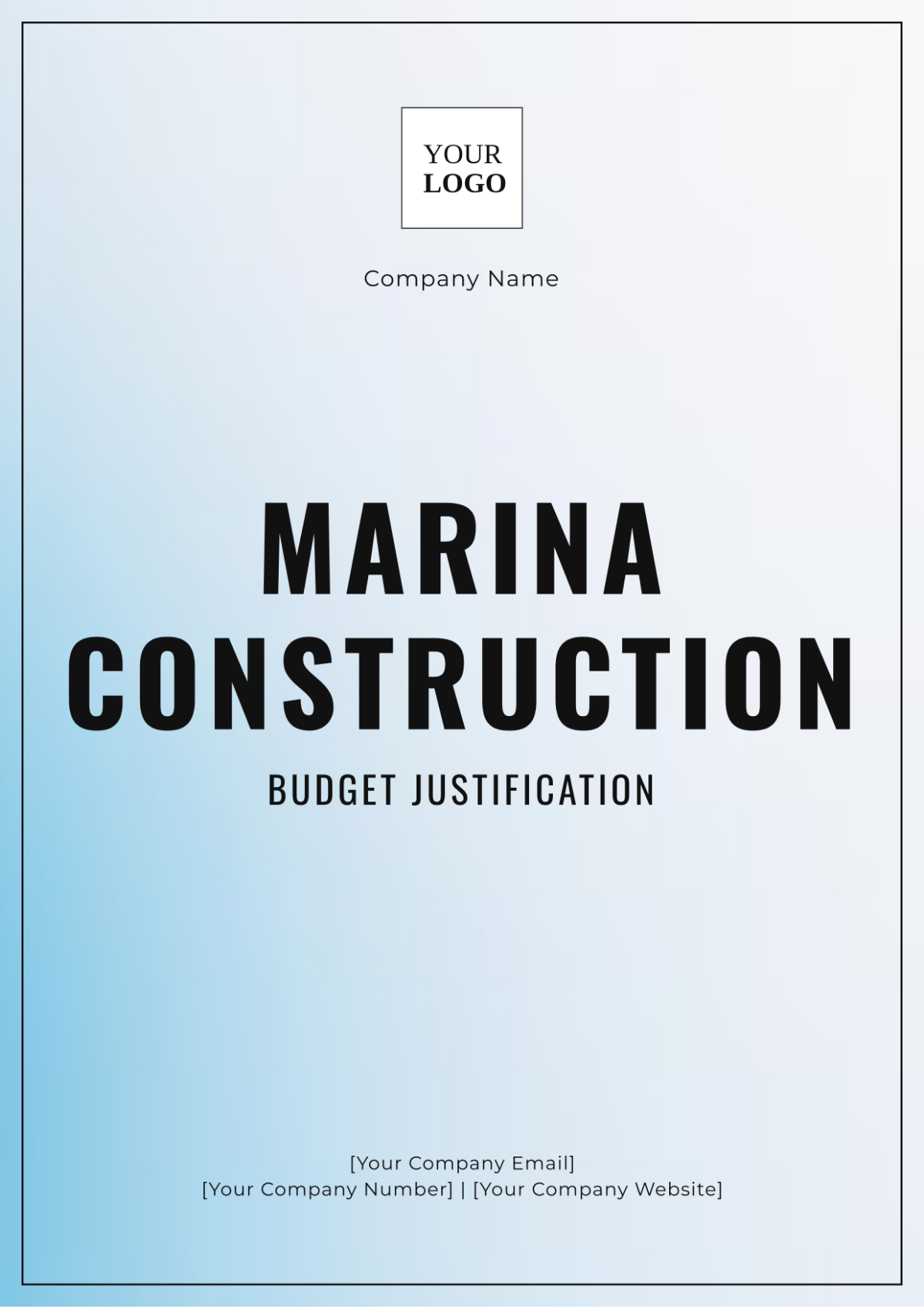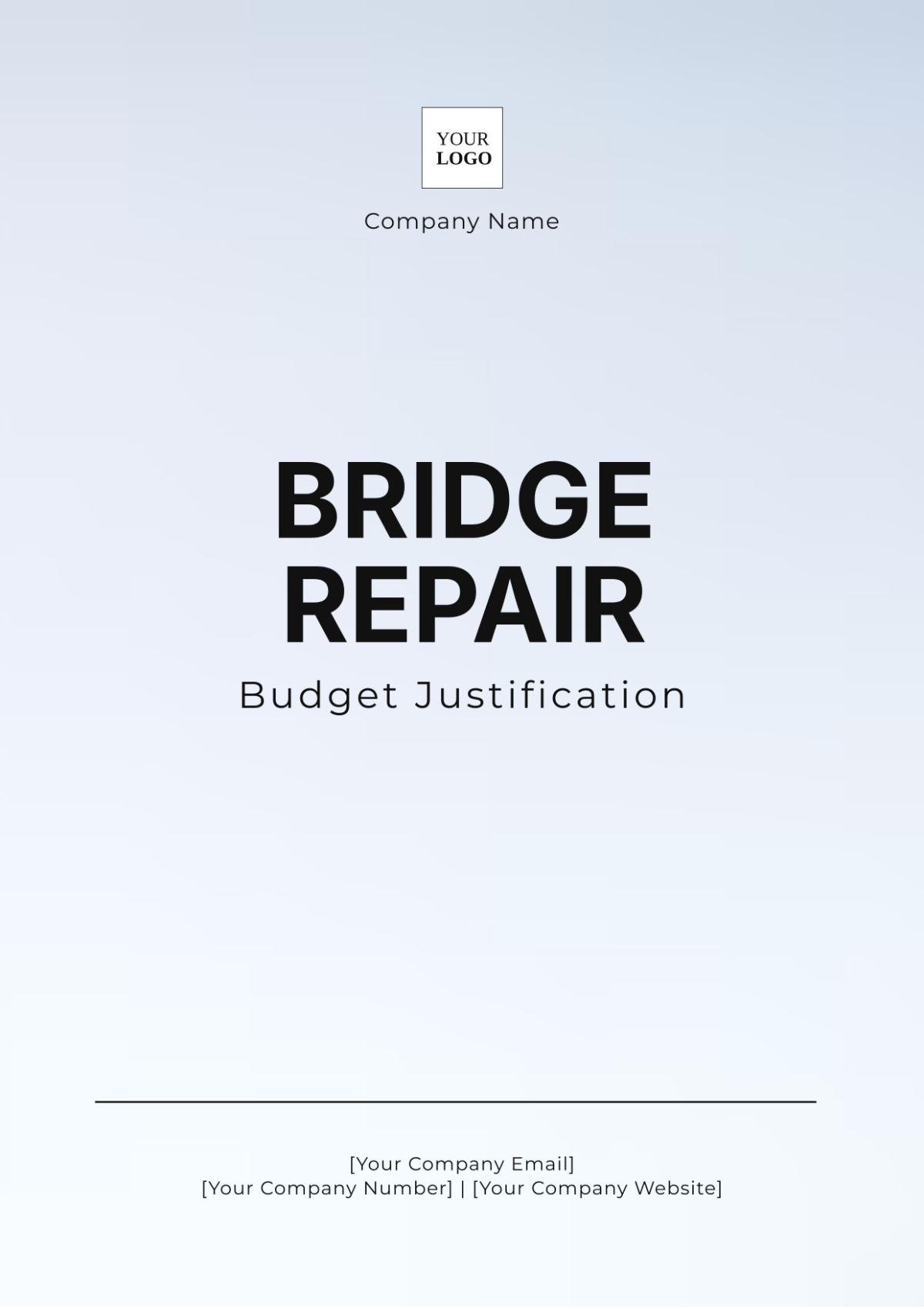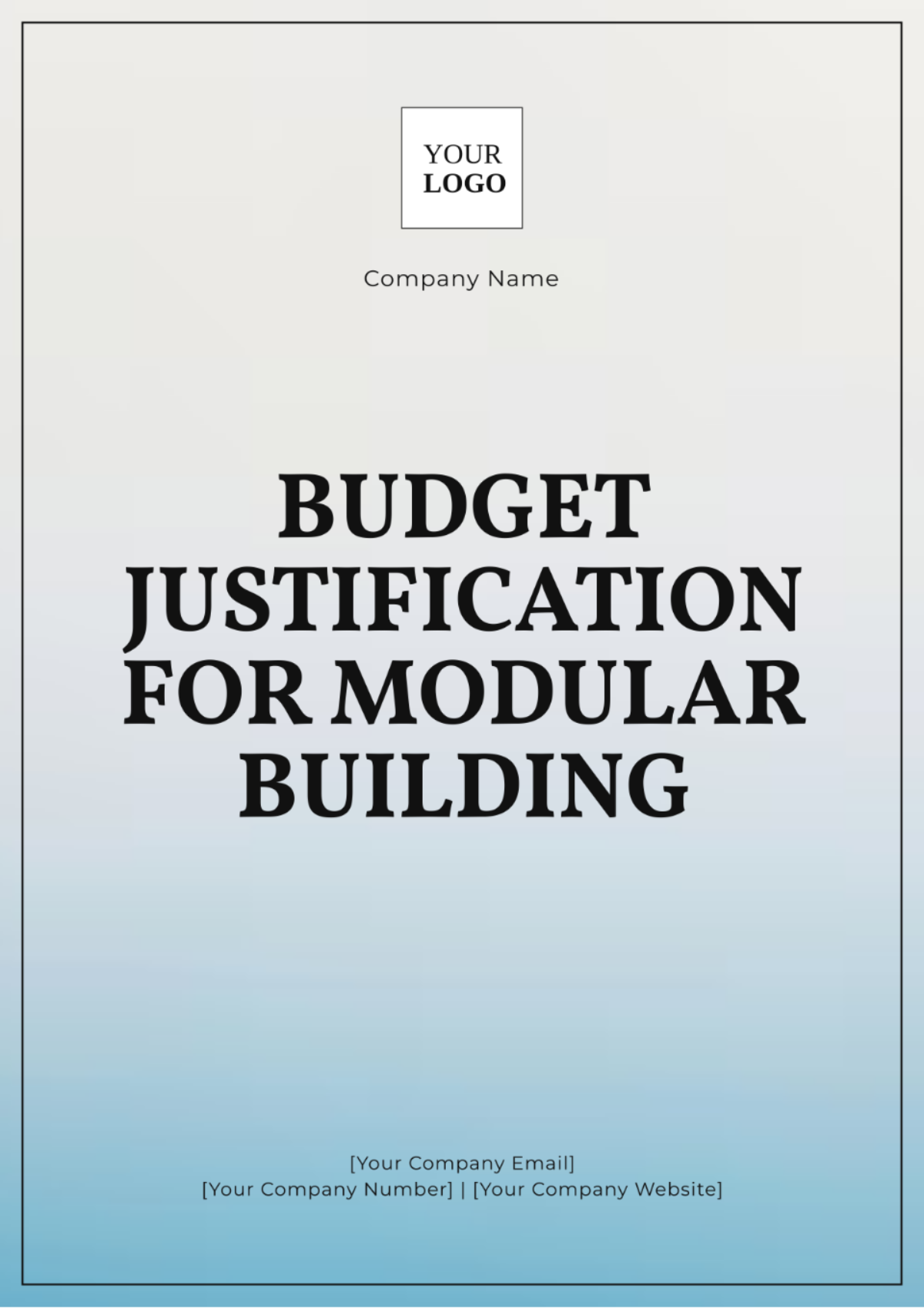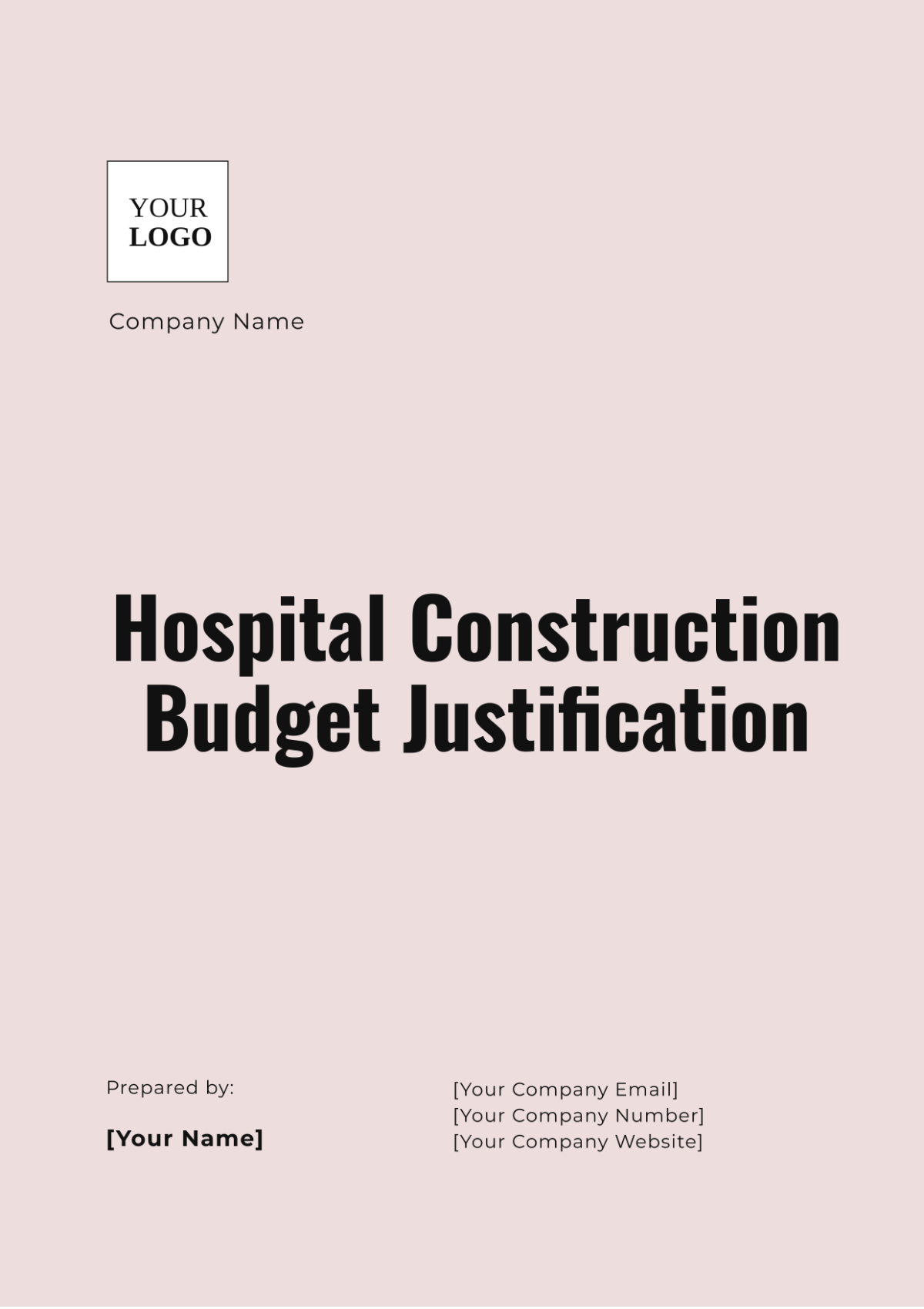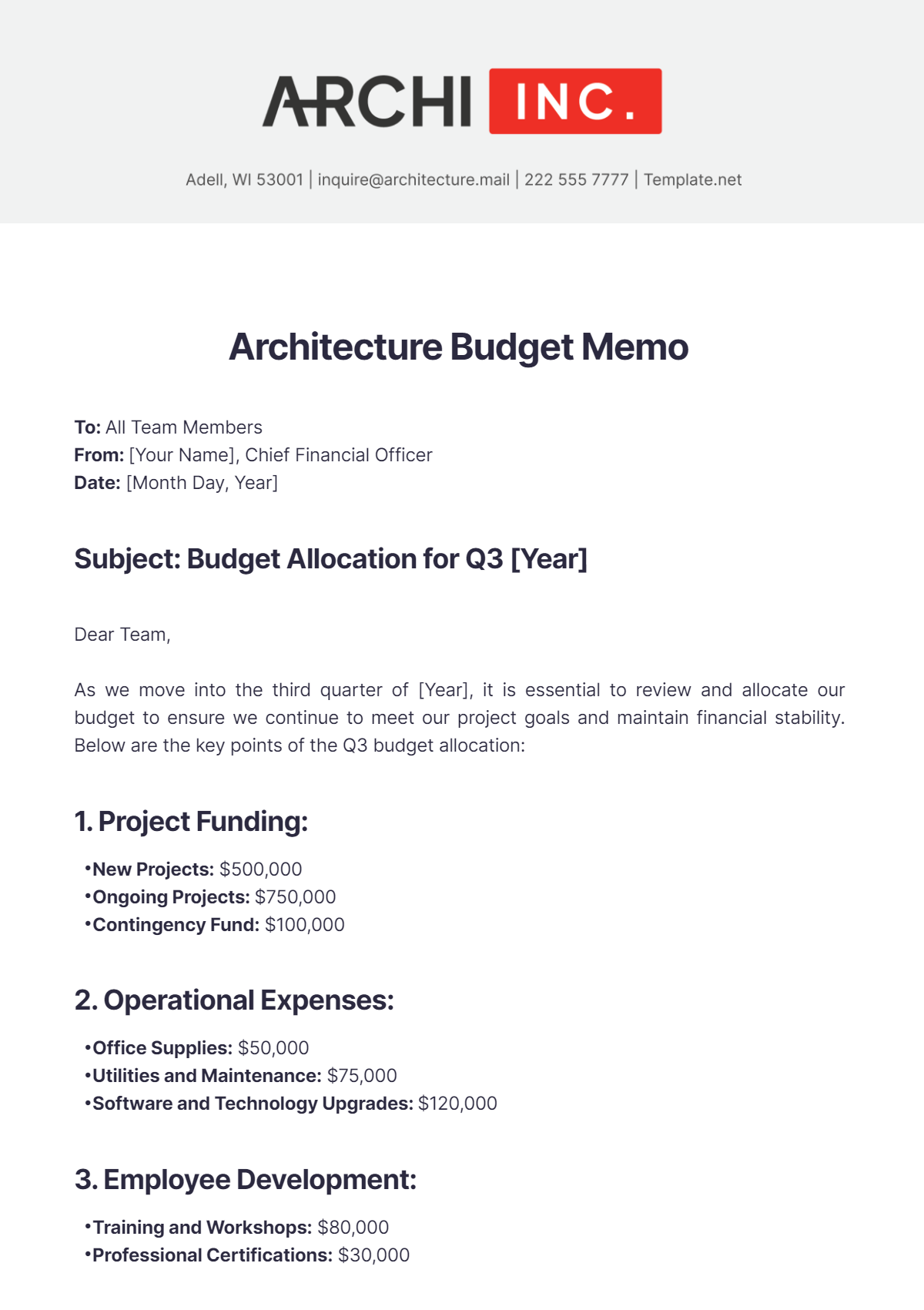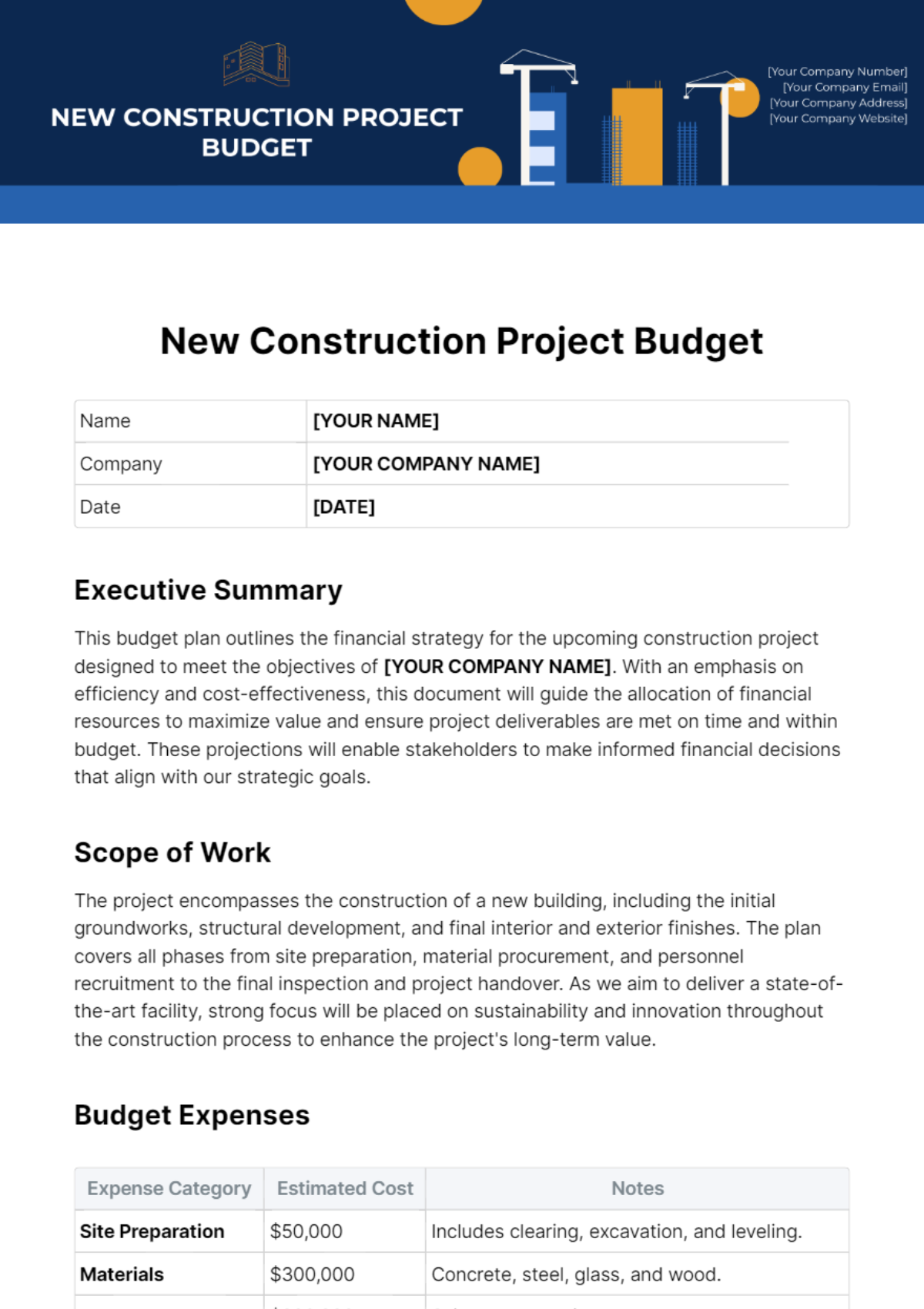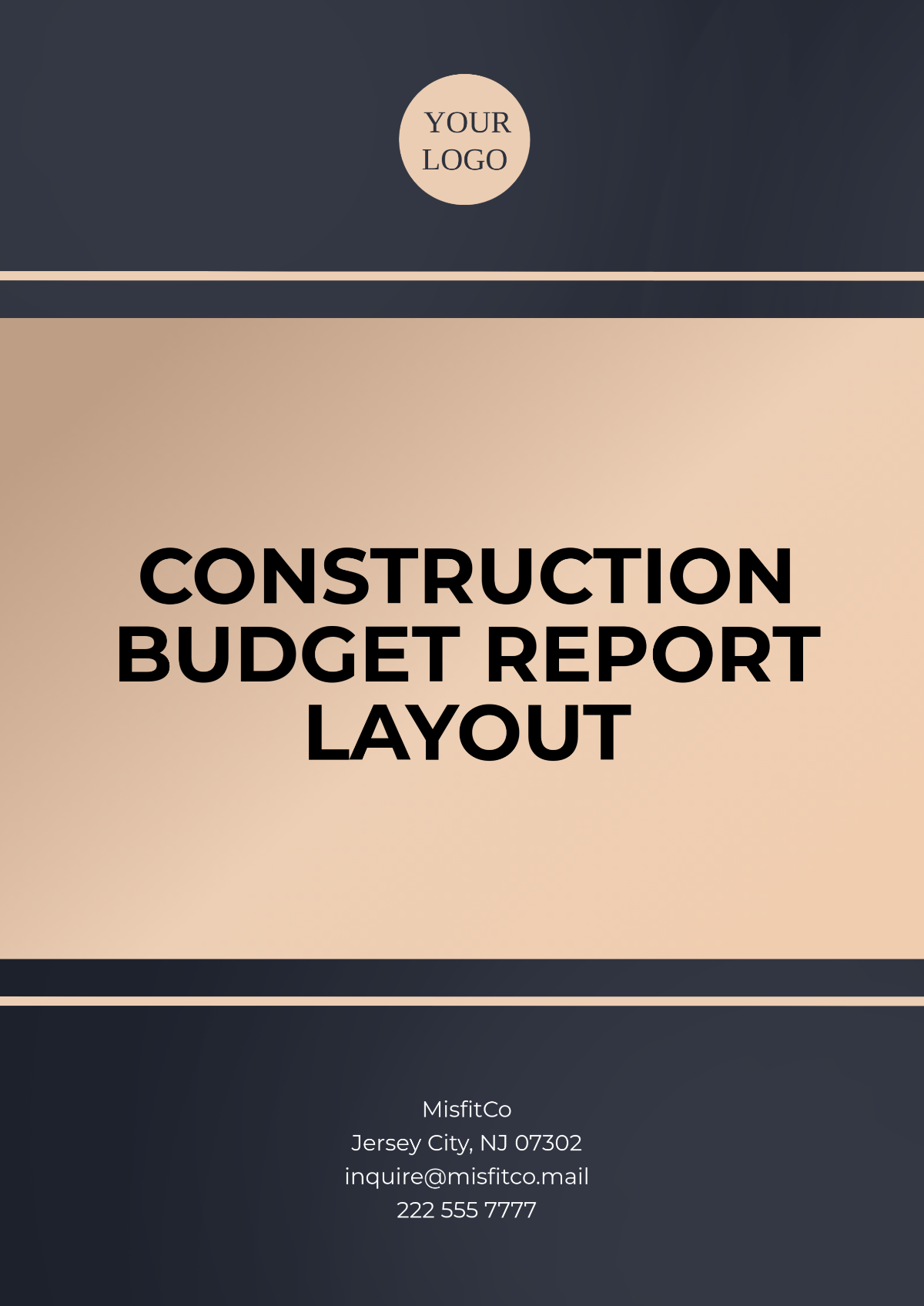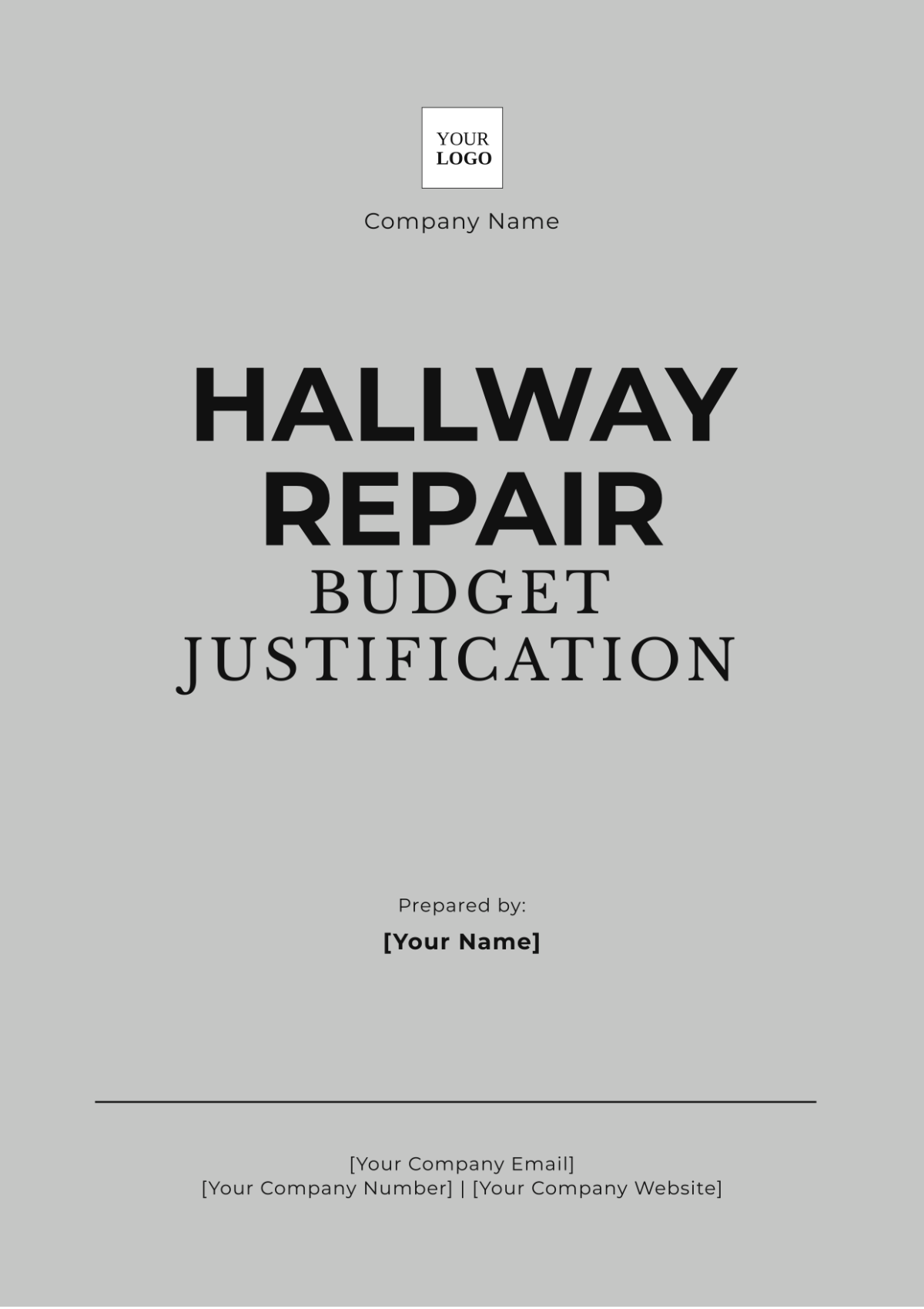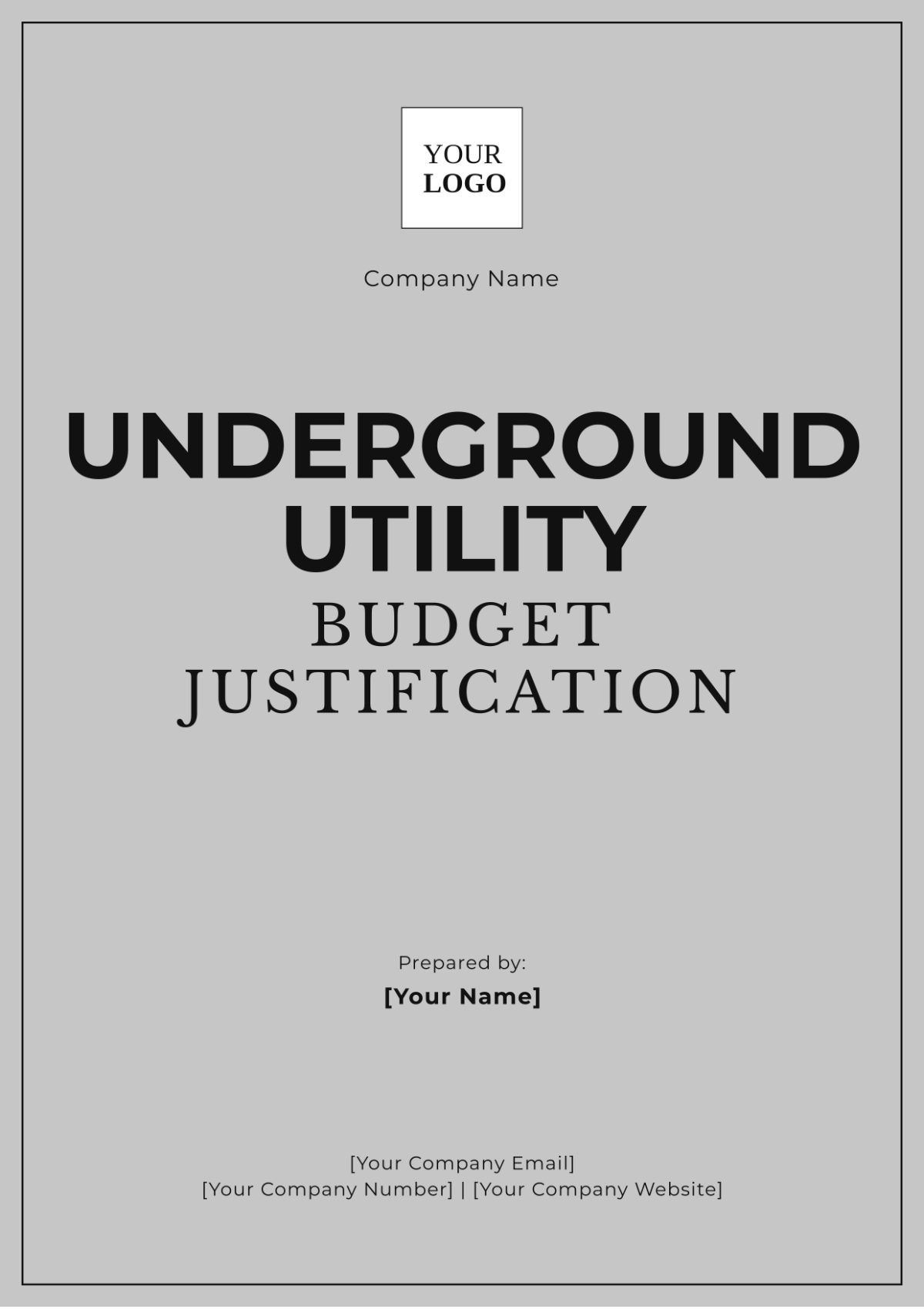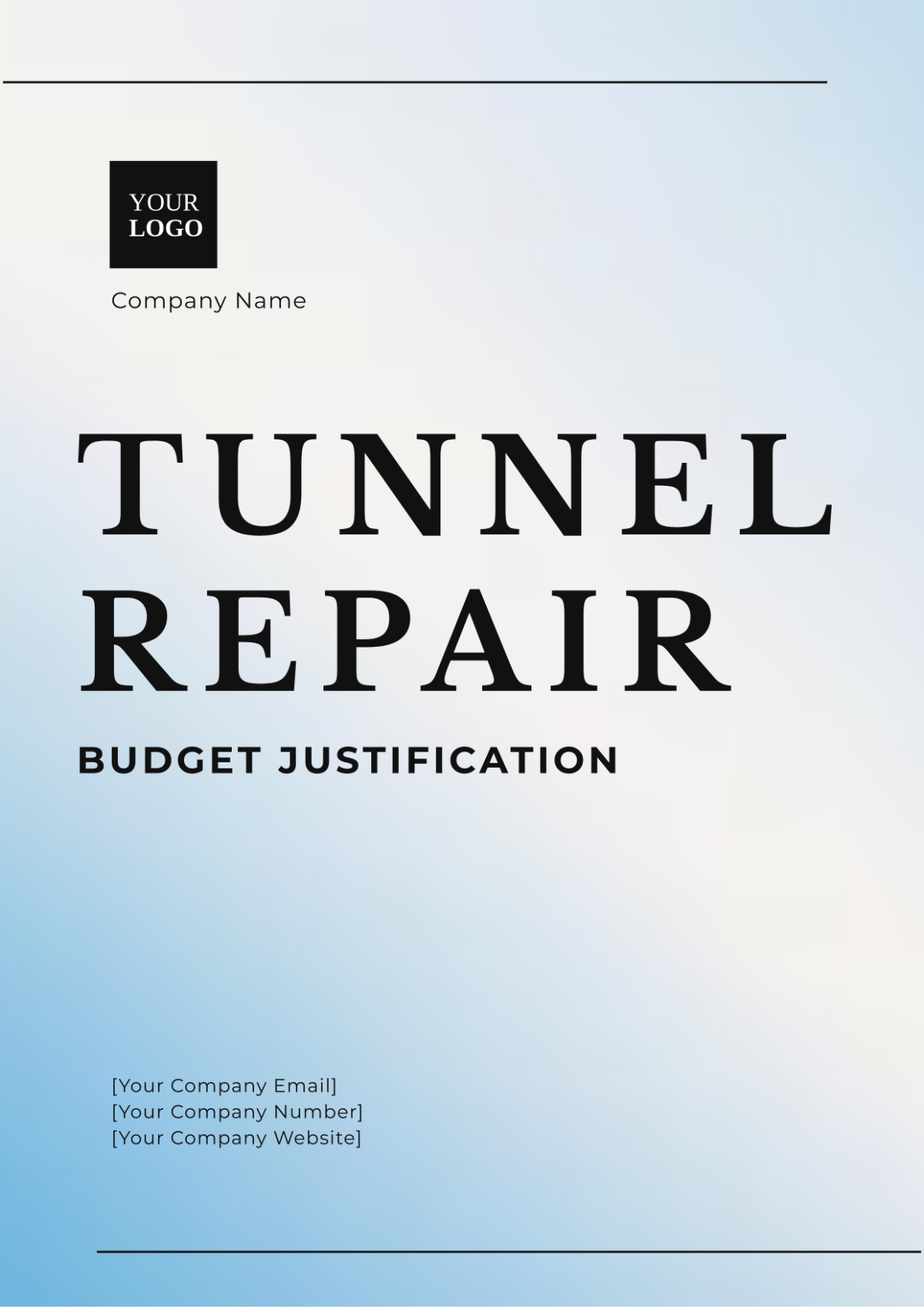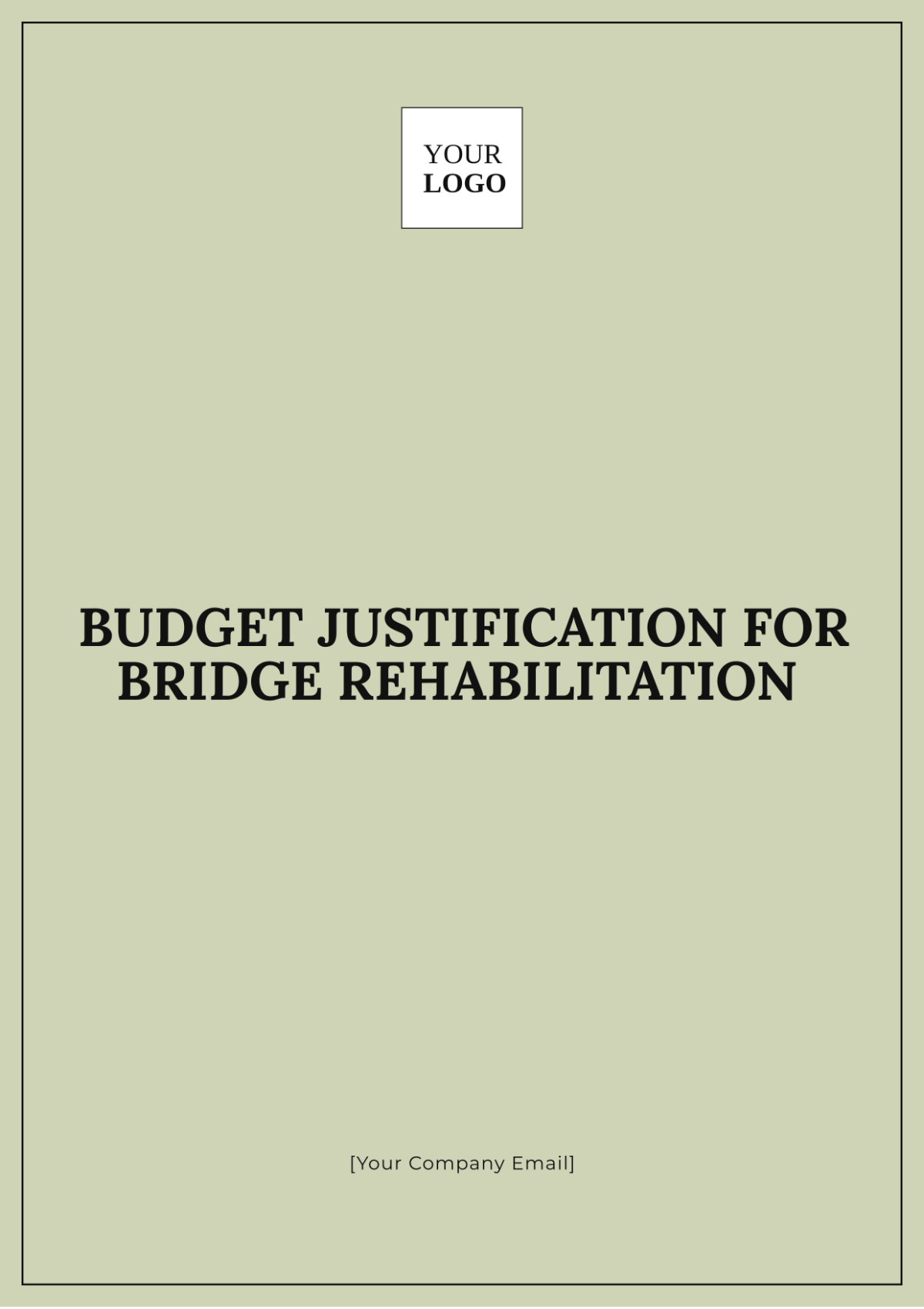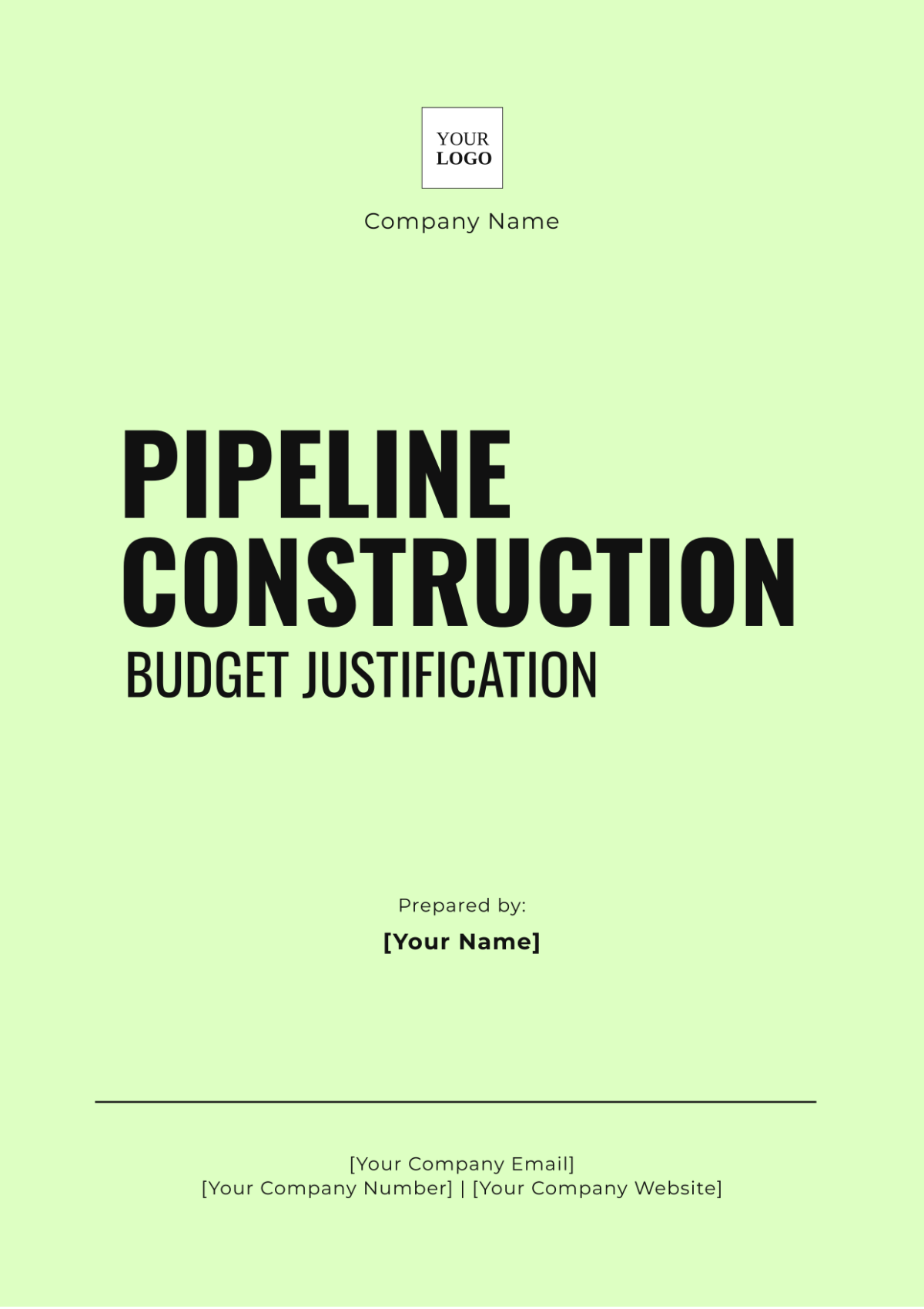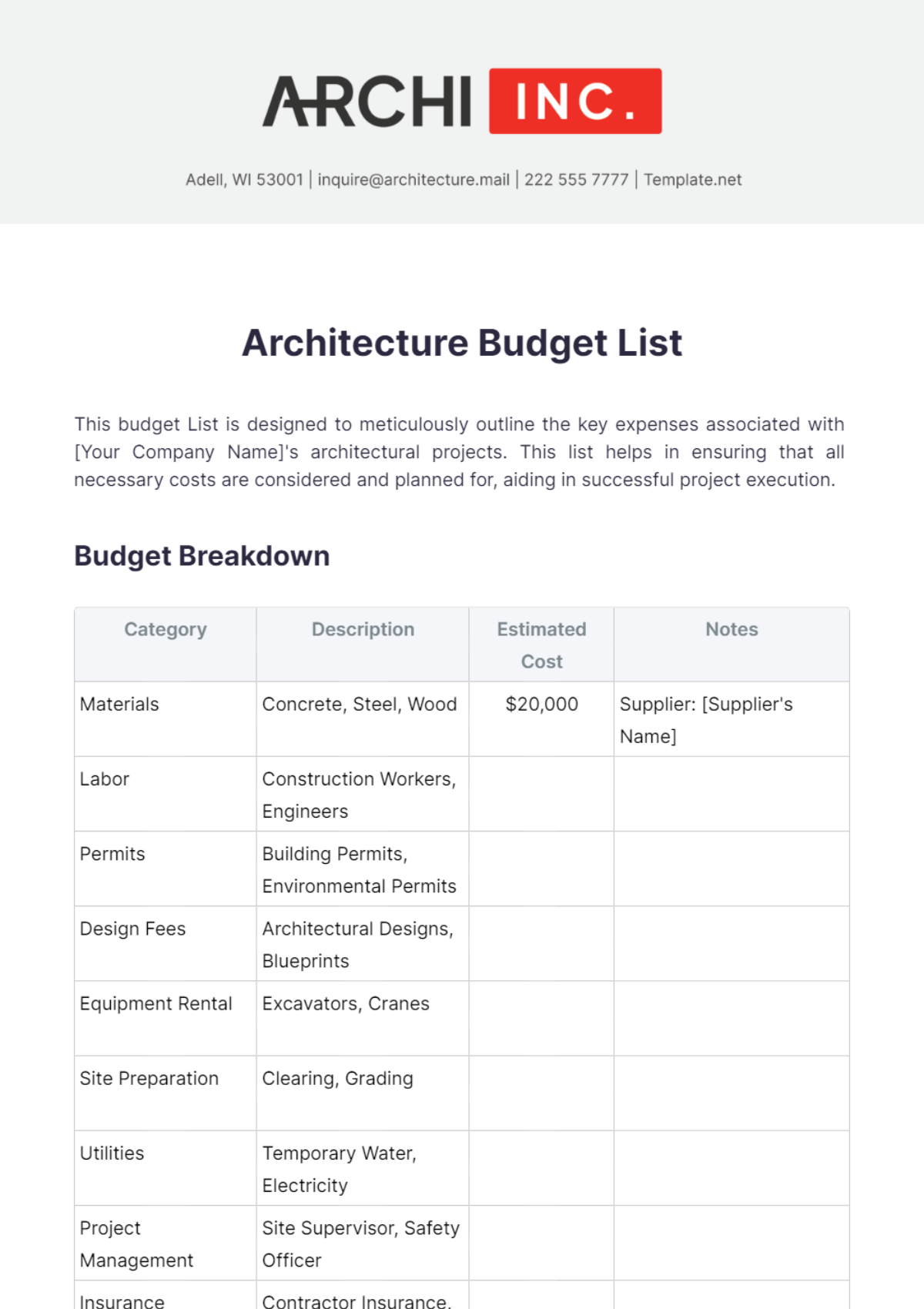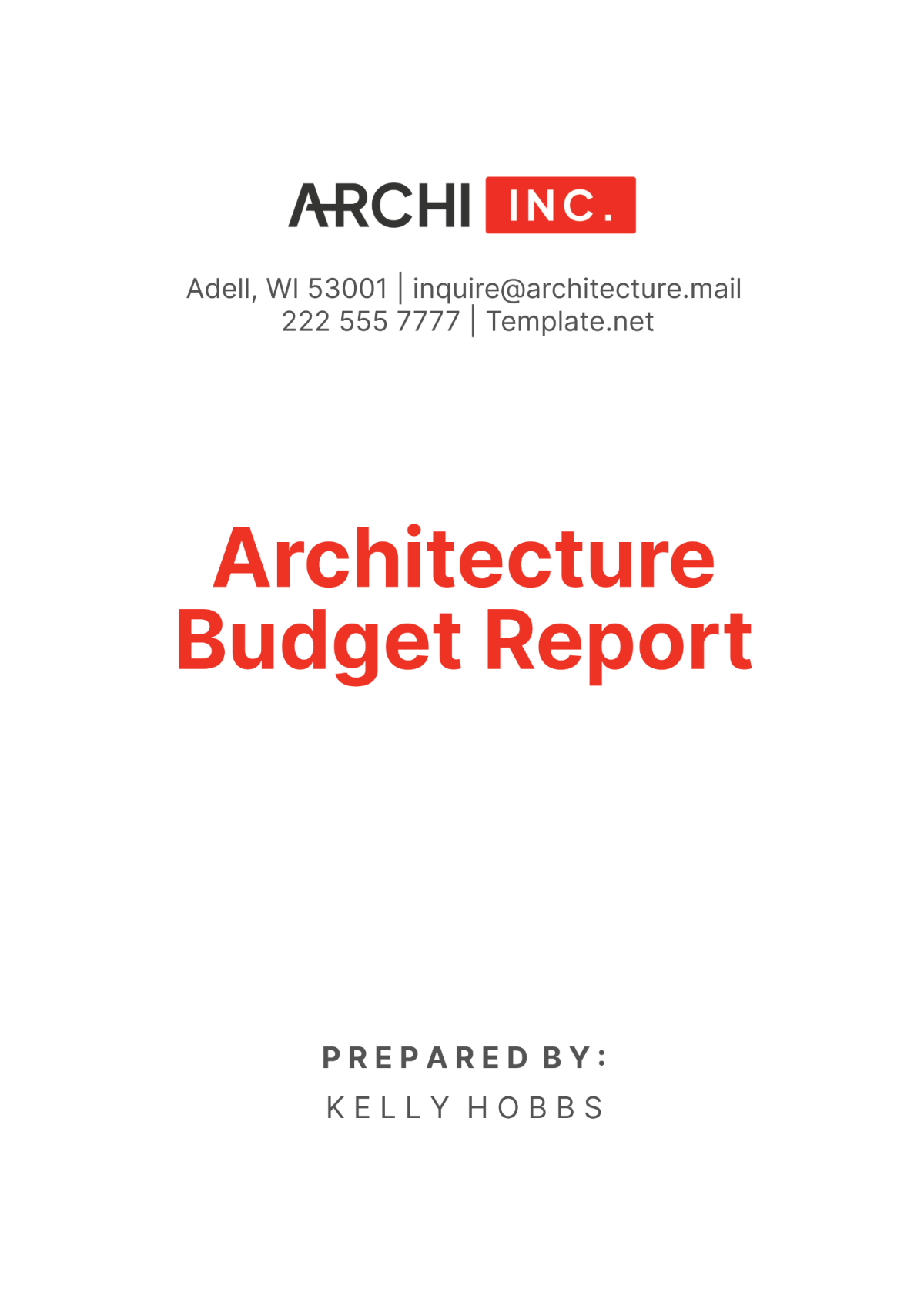Architecture Budget Report
I. Executive Summary
This Architecture Budget Report provides a comprehensive financial overview of our ongoing commercial building project. The purpose of this report is to ensure that all financial aspects are monitored and managed effectively to maintain budget compliance and project success.
Key Financial Highlights
Total project budget: $1,000,000
Total expenditures to date: $450,000
Remaining budget: $550,000
Key cost: Design and Planning, Permit and Approval, Construction, Materials and Supplies, Labor
II. Project Description
We are undertaking a comprehensive architectural project located at [Project Location]. The project scope includes schematic design, design development, construction documents, and construction administration. The timeline for the project is as follows:
Schematic Design: 30 days (completed)
Design Development: 60 days (ongoing)
Construction Documents: 90 days
Construction Administration: Throughout construction period, at 180 days
III. Budget Overview
The total estimated budget for the project is $1,000,000. Below is a table summarizing the major cost categories:
Cost Category | Actual Cost ($) |
|---|---|
Design and Planning | 180,000 |
Permit and Approval | 40,000 |
Construction | 200,000 |
Materials and Supplies | 20,000 |
Labor | 10,000 |
Total | 450,000 |
A. Design and Planning
The design and planning phase includes architectural fees, engineering fees, and consultant fees. Below is a detailed breakdown of these costs:
Design and Planning | Budgeted ($) | Actual ($) | Variance ($) |
|---|---|---|---|
Architectural Fees | 100,000 | 90,000 | -10,000 |
Engineering Fees | 70,000 | 65,000 | -5,000 |
Consultant Fees | 30,000 | 25,000 | -5,000 |
Total | 200,000 | 180,000 | -20,000 |
Design and planning costs were incurred to develop the project's initial concept, detailed designs, and necessary documentation. These costs are slightly under budget due to efficient use of resources and negotiated fee reductions.
B. Permit and Approval
The permit and approval phase involves obtaining the necessary permits and approvals for the project. Below is a detailed breakdown of these costs:
Permit and Approval | Budgeted ($) | Actual ($) | Variance ($) |
|---|---|---|---|
Building Permits | 25,000 | 20,000 | -5,000 |
Environmental Approvals | 15,000 | 12,000 | -3,000 |
Zoning Fees | 10,000 | 8,000 | -2,000 |
Total | 50,000 | 40,000 | -10,000 |
Permit and approval fees were incurred to ensure compliance with local regulations and environmental standards. These costs are under budget due to expedited approval processes and lower than expected fees.
C. Construction Costs
The construction phase includes site preparation, foundation and structural work, electrical and plumbing, and interior and exterior finishes. Below is a detailed breakdown of these costs:
Construction | Budgeted ($) | Actual ($) | Variance ($) |
|---|---|---|---|
Site Preparation | 50,000 | 20,000 | -30,000 |
Foundation and Structural | 200,000 | 80,000 | -120,000 |
Electrical and Plumbing | 150,000 | 50,000 | -100,000 |
Interior Finishes | 100,000 | 30,000 | -70,000 |
Exterior Finishes | 100,000 | 20,000 | -80,000 |
Total | 600,000 | 200,000 | -400,000 |
Construction costs were incurred for essential building activities. These costs are significantly under budget as the project is still in early stages, and major construction activities are yet to be fully billed.
D. Materials and Supplies
This category includes the procurement of necessary materials and supplies for the construction phase. Below is a detailed breakdown of these costs:
Materials and Supplies | Budgeted ($) | Actual ($) | Variance ($) |
|---|---|---|---|
Concrete and Steel | 40,000 | 10,000 | -30,000 |
Electrical Supplies | 20,000 | 4,000 | -16,000 |
Plumbing Supplies | 20,000 | 3,000 | -17,000 |
Interior Finishes | 10,000 | 2,000 | -8,000 |
Exterior Finishes | 10,000 | 1,000 | -9,000 |
Total | 100,000 | 20,000 | -80,000 |
Materials and supplies costs are currently low as bulk procurement and utilization of materials will ramp up during the more intensive phases of construction.
E. Labor Costs
The labor costs include wages, salaries, and subcontractor fees. Below is a detailed breakdown of these costs:
Labor | Budgeted ($) | Actual ($) | Variance ($) |
|---|---|---|---|
Wages and Salaries | 30,000 | 6,000 | -24,000 |
Subcontractor Fees | 20,000 | 4,000 | -16,000 |
Total | 50,000 | 10,000 | -40,000 |
Labor costs are currently under budget as the project is in the initial stages, with significant labor costs expected to accrue during the more intensive phases of construction.
V. Variance Analysis
This section provides a comparison of the budgeted costs versus the actual costs incurred to date, identifying any variances and their implications for the project.
Cost Category | Budgeted ($) | Actual ($) | Variance ($) |
|---|---|---|---|
Design and Planning | 200,000 | 180,000 | -20,000 |
Permit and Approval | 50,000 | 40,000 | -10,000 |
Construction | 600,000 | 200,000 | -400,000 |
Materials and Supplies | 100,000 | 20,000 | -80,000 |
Labor | 50,000 | 10,000 | -40,000 |
Total | 1,000,000 | 450,000 | -550,000 |
The variance analysis shows that we are currently under budget across all categories, primarily due to the project being in its early stages. The largest variances are in construction costs and materials and supplies, indicating that significant expenditures are yet to be incurred as the project progresses.
VI. Funding Status
This section provides an overview of the funds received to date versus the expected total funding for the project.
Funding Source | Expected ($) | Received ($) | Variance ($) |
|---|---|---|---|
Client Contributions | 500,000 | 300,000 | -200,000 |
Loans and Financing | 250,000 | 150,000 | -100,000 |
Grants and Subsidies | 150,000 | 100,000 | -50,000 |
Partner Investments | 100,000 | 50,000 | -50,000 |
Total | 1,000,000 | 600,000 | -400,000 |
The variance between expected and received funds is currently $400,000. This shortfall in received funds impacts our cash flow and necessitates close monitoring to ensure that future funding milestones are met to maintain project progress and financial stability.
VII. Cash Flow Analysis
This section provides a comparison of the projected monthly cash flow versus the actual cash flow experienced to date.
Month | Projected Inflows | Projected Outflows | Actual Inflows | Actual Outflows | Net Cash Flow |
|---|---|---|---|---|---|
1 | 100,000 | 50,000 | 90,000 | 45,000 | 45,000 |
2 | 100,000 | 100,000 | 80,000 | 90,000 | -10,000 |
3 | 150,000 | 150,000 | 100,000 | 120,000 | -20,000 |
4 | 200,000 | 200,000 | 150,000 | 150,000 | 0 |
5 | 150,000 | 150,000 | 80,000 | 100,000 | -20,000 |
6 | 100,000 | 100,000 | 50,000 | 70,000 | -20,000 |
Total | 800,000 | 750,000 | 550,000 | 575,000 | -25,000 |
The cash flow analysis indicates that actual inflows have been lower than projected, leading to a net negative cash flow of $25,000 to date. This variance highlights the need for improved cash flow management and timely receipt of funds to support ongoing project activities.
VIII. Forecast and Recommendations
Based on current financial performance, we have updated our financial forecast for the project. Below is the updated forecast.
Year | Original Revenue Forecast | Updated Revenue Forecast | Original Expense Forecast | Updated Expense Forecast | Original Net Profit | Updated Net |
|---|---|---|---|---|---|---|
1 | 1,200 | 1,150 | 1,000 | 1,050 | 200 | 100 |
2 | 1,300 | 1,250 | 1,100 | 1,150 | 200 | 100 |
3 | 1,400 | 1,350 | 1,200 | 1,250 | 200 | 100 |
Total | 3,900 | 3,750 | 3,300 | 3,450 | 600 | 300 |
Note: in thousands
Recommendations
Enhance Funding Efforts: Accelerate the collection of expected funds and explore additional funding sources to cover the shortfall.
Cost Control Measures: Implement stricter cost control measures to manage and reduce expenses.
Cash Flow Management: Improve cash flow management by closely monitoring inflows and outflows and adjusting the budget accordingly.
Regular Financial Reviews: Conduct regular financial reviews to ensure the project remains on track and within budget.
These adjustments and recommendations will help ensure the project's financial health and successful completion.
